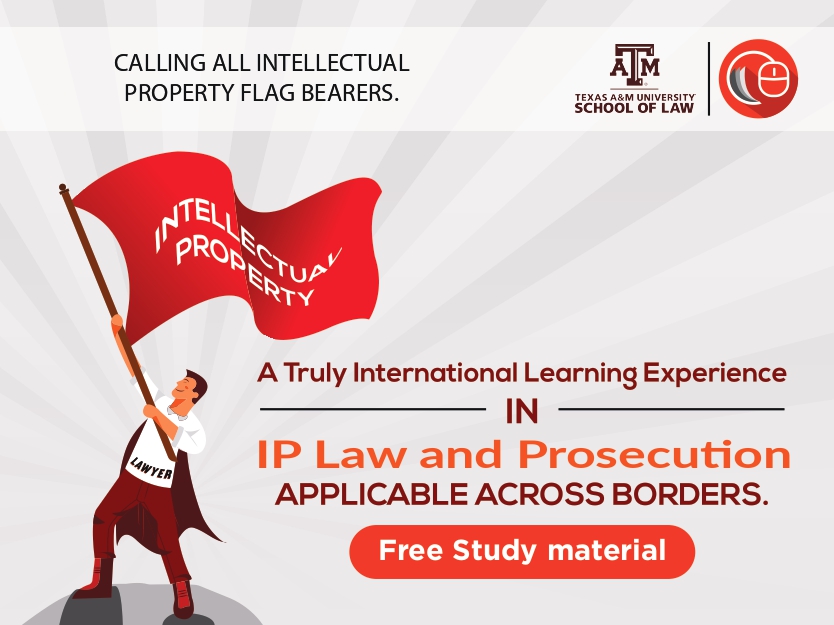This article is written by Tejas Agarrawal who is pursuing a Certificate Course in Intellectual Property Law and Prosecution from LawSikho.
Table of Contents
Introduction
Before discussing the importance of Compulsory Licensing (‘CL’) in combating unavailability of patented articles, let us first know what CL actually is – CL is an authorisation granted to a third party by the state on reasonable terms for using a patented product or process without patentee’s consent. It is an involuntary contract between a willing buyer and an unwilling seller imposed and enforced by the State.
In India, the provisions related to CL are provided under the Patents Act, 1970 (‘the Act’) in Chapter XVI from Ss. 82 to 94 and in Chapter XIII of The Patents Rules, 2003. S. 84 of the Act contains an elaborate mechanism for granting CL to a 3rd Party. It provides that 3 years must expire from the date of patent grant before fulfilment of the grounds for granting CL to a 3rd party under the Act. These grounds are:
- Non-satisfaction of reasonable requirements of the public with regard to the patented invention, or
- Non-availability of the patented invention to the public at a reasonably affordable price, or
- Non-working of the patented invention in the territory of India.
Provisions under TRIPS agreement
The TRIPS (Trade Related Aspects of Intellectual Property Rights) Agreement in Article 8 stipulates that Members may take appropriate measures, consistent with the agreement, for protecting public health and interest from abuse of intellectual property rights or unfair trade practices.
More specifically, under Article 40.1 the agreement recognises that some anti-competitive practices by intellectual property right holders may adversely affect trade and transfer of technology. And therefore in Article 40.2, it permits members to prevent or control such abuse through adequate measures under their domestic laws.
Indian case
Despite having an elaborate CL procedure, it is ironical that only One CL has ever been granted in India till date (April 2021). This sole CL was granted to Hyderabad based generic drug manufacturing company Natco Pharma (Applicant) in the year 2012 for manufacturing the patented cancer drug ‘Sorafenib Tosylate’ (compound of Carboxyaryl Substituted Diphenyl Ureas) (invented drug) sold under the brand name ‘Nexavar’ patented by Bayer Corporation (Patentee). At the time of applying for the Compulsory License, the price charged by the Bayer Corporation for a month’s therapy was Rs. 2,80,428/- as against the price of Rs. 10,000/- proposed to be charged by Natco Pharma.
International instances
Thailand
In the late 2006 and early 2007, Thai government approved 3 compulsory licenses for domestically producing – Plavix (sold by French giant Sanofi Aventis and US company Bristol – Meyers Squibb) used for blood thinning to prevent heart attacks, Kaletra (owned by US-based Abbott) and Efavirenz (sold by Merck MSD) used for HIV/AIDS treatment. The move was aimed at making the anti-retroviral and heart disease prevention drugs affordable to the public under the government’s universal health scheme.
The anti-retroviral drug sold by the original inventor was only affordable to a fifth of the country’s half a million HIV suffering population at that time. After the grant of license, the generic version of the drug was available at about a tenth of the cost of the patented product.
USA
Even though the provision of compulsory licensing is absent from the existing United States patent legislations, it has been granting them under the antitrust law against persons involved in unfair trade practices or abuse of dominant position in the market. Few instances of compulsory licenses being granted by US government through Federal Trade Commission (FTC) are:
- First is the Xerox case, in which the FTC alleged that Xerox is guilty of unfair practice of eliminating competition in the development and creation of office copiers by preserving monopoly and building extensive patent portfolios by acquiring patents to all technologies needed to perform xerography through mergers and acquisitions of other small competitors.
The FTC then entered into a consent decree/compulsory licensing agreement (a “consent decree” is an agreement or settlement which resolves a legal dispute between two parties without any admission of guilt or liability) in the year 1975 with Xerox Corp. to license its plain paper office copier patents to other third parties involved in the development of the office copier machines by requiring Xerox to permit the use of its any 3 dry paper copier patents royalty free and the rest at a royalty rate of less than 0.5 per cent of the net revenues with an accumulated royalty of 1.5 per cent.
- Another important case in point was United States vs. Miller Indus., (For Full Judgment) passed in the year 2000 involving Miller Industries, a towing and recovery equipment manufacturing company based in the United States and their recent acquisition of Chevron Inc.
Under the terms of the agreement, Miller Industries was to offer nonexclusive license of its light duty tow trucks and light duty car carrier patents to any third party in exchange for a predetermined unit license fee along with various other terms and conditions mentioned in the agreement entered with Government of United States.
To know more about Patent please visit
Advantages of compulsory licensing
There are various advantages of using Compulsory Licensing as a tool for effective socio-economic and technological development of a country especially developing nations.
- Patents, especially on pharmaceuticals, hamper economic growth of developing countries due to non-availability or unaffordability of essential drugs or technology to its citizens. Threat of issuing compulsory licensing may help in negotiating differential price models from the inventors of essential products which is acceptable to both the parties. Eg. Xerox case of 1975 or Miller Indus. Case – discussed above.
- Compulsory licensing is required for saving lives of the domestic population in developing countries by securing availability of life saving drugs at affordable prices like the case of compulsory license granted to Natco Pharma and license issued by Thailand government for anti-retroviral and heart disease prevention drugs.
- Patents may sometimes cause delay in technological development due to deadlock between the original inventor and the improver. For example – the Xerox case where the majority of office copier technology patents were held by a single company leading to slowing of technological progress in that particular field. CL can be used in such situations to effectively resolve the deadlock by pressurizing the original inventor to reach an amicable settlement with the improver.
- CL becomes essential to deal with the case of ‘patent suppression’ by pressurizing the inventor to utilize the patent to maximum national advantage.
Arguments against compulsory licenses
- The Licensee benefits the most from the inventor’s research without any contribution to the cost incurred in the research and development of the invention.
- Inferior quality unapproved generics may pose safety concerns among consumers of these products.
- There are some diseases which are unique to developing countries or least developed countries where patent protection to multinationals may provide incentive to invest in research and development of the cure and uncertainty over the patent environment may discourage them to venture into countries where compulsory licensing is frequently applied. For example – in Thailand soon after CL was issued for antiretroviral drug Kaletra (owned by Abbott), the company announced that it will stop licensing any new drug it develops, for sale in Thailand.
- CL may cause trade frictions among countries which manufacture patented products.
- The grant of CL by the government may lead to loss of foreign direct investment as multinationals will fear investing in such countries where there is no protection for their innovation.
- Directly negotiating with the company to make their product more affordable to the masses may prove beneficial to the government instead of issuing compulsory license without their knowledge or consent.
Conclusion
One of the basic principle behind granting patent protection is to encourage inventions and promote technological innovation to the mutual benefit of both the producer as well as the user of the product or process but if there is abuse of that privilege by the rights holder then it becomes incumbent upon the government to safeguard the interest of the public at large by following the due process of law. The grant of compulsory license by states is a recognized right at the international level. Patent is a privilege granted by the sovereign to the patent holder and therefore it can limit that privilege in certain situations. However, there is a need to strike a balance between the rights of the patent holder and the public interest at large.
It also becomes necessary upon the licensee of the patent to sacrifice their profit margin so that the product or process licensed can be made available to an even larger population. Compulsory License is a double-edged sword which needs to be used judiciously and any rampant usage may prove disastrous for the whole society.
References
- The Patents Act, 1970 (39 of 1970). Available at : https://ipindia.gov.in/writereaddata/Portal/ev/sections-index.html
- The Patents Rules, 2003. Available at : https://ipindia.gov.in/writereaddata/Portal/ev/rules-index.html
- TRIPS Agreement
- (19 March 2007). Thailand backs patent drug copies, BBC, [Online]. Available at: http://news.bbc.co.uk/2/hi/asia-pacific/6310515.stm ; Head J, (19 March 2007). US drugs firm blacklists Thailand, BBC, [Online] Available at : http://news.bbc.co.uk/2/hi/asia-pacific/6587379.stm ;
- Yang, Deli. (January 2012) ‘Compulsory Licensing: For Better Or For Worse, The Done Deal Lies In The Balance’, Journal of Intellectual Property Rights, [Online] Vol 17, Pp 76-81. Available at: https://www.researchgate.net/publication/267986487_Compulsory_Licensing_For_Better_or_For_Worse_the_Done_Deal_Lies_in_the_Balance [Accessed 5Apr. 2021].
- Rosch, J. Thomas. (January 2011) ‘Some thoughts on the role of Intellectual Property in Innovation Market Cases and refusals to License’. Remarks before the Conference on Antitrust and Digital Enforcement in the Technology Sector, [Online]. Available at: https://www.ftc.gov/sites/default/files/documents/public_statements/some-thoughts-role-intellectual-property-innovation-market-cases-and-refusals-license/110131technologysector.pdf [Accessed 5 Apr. 2021]
- Order, §§ II to IV, Xerox Corp., FTC Docket No. 8909, reprinted in Xerox Corp., 86 F.T.C. at 373-74.
- United States v. Miller Indus., No. 00-0305 (TPJ), 2000 U.S. Dist. LEXIS 19542 (D.D.C. Dec. 12, 2000). Available at: https://www.justice.gov/atr/case-document/file/504376/download [Accessed 6 Apr. 2021]
Students of Lawsikho courses regularly produce writing assignments and work on practical exercises as a part of their coursework and develop themselves in real-life practical skill.
LawSikho has created a telegram group for exchanging legal knowledge, referrals and various opportunities. You can click on this link and join:
 Serato DJ Crack 2025Serato DJ PRO Crack
Serato DJ Crack 2025Serato DJ PRO Crack











 Allow notifications
Allow notifications


